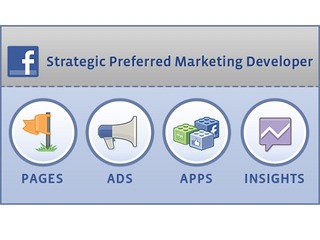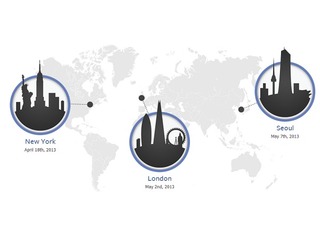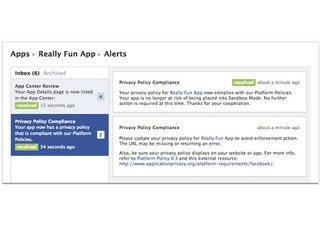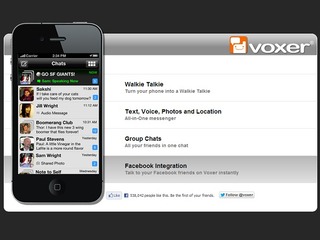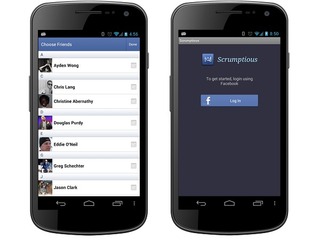Global AI in healthcare market expected to rise to $164B by 2030
The market size for 2023 was $10.31 billion
Read more...
Who needs Facebook, amiright?
Messaging app MessageMe may have been cut off from the Facebook friend graph only days after its launch in the App Store last week, but that has not stopped the company from growing at a remarkable pace, and from raising its first funding.
Less than a week after officially launching, MessageMe now has over one million users and is sending over 500 notifications per second around the world, it announced Tuesday.
The company also revealed that it has raised a seed investment from True Ventures, First Round Capital, Google Ventures, SVAngel, Resolut.vc, Andreessen Horowitz, Greylock Partners and Social+Capital Partnership, as well as angel investors Brian Pokorny, Hiten Shah, Eric Wu, Rex Ng, Darian Shirazi and Suleman Ali.
The amount of money raised was not disclosed in the blogpost, but it is being reported that it was $1.9 million. VatorNews has reached out to MessageMe to verify this.
MessageMe is a messaging app (obviously) that allows users to send each other what are known as "Packages," which include pictures, doodles, videos and locations.
Messaging is a crowded space, with services like WhatsApp, Line and Facebook Messenger all competing for the same market. So far, despite its limited timeframe, MessageMe seems to be holding its own against those more established players. In the United States alone, more than 10 million doodles have been shared, along with more than 4 million songs on iTunes.
"We spent the last year building MessageMe with the goal to deliver a fun, rich and engaging experience by adding expression to messaging. We believe a core communication service like messaging can, and should, do more to keep up with the technological advances in the smartphone market. We’re proud of where we are and we believe it’s a step in that direction," MessageMe co-founders wrote.
Facebook vs Developers
Since the middle of 2012, Facebook has taken a series of steps to lure developers and make it easier for them to develop apps using Facebook technology.
In September it created a most favored partner list for brands, choosing 12 companies out of 300-plus, from its Preferred Marketing Developer (PMD) program to award with a higher honor. There was also an overhauling of the Android SDK in October, along with the introduction of a new Android Dev Center.
In November, Facebook launched developer alerts to notify them of upcoming changes, problems and status updates, and earlier this month it announced that three new developer conferences will be held in April and May.
But this may all be for naught, as developers have become angry at Facebook's repeated attempts to cut off a number of third-party apps from its social graph, the Wall Street Journal reported Tuesday.
Facebook has cut off four different apps since the beginning of the year: mobile communications service Voxer, Twitter's Vine app, which allows users to create and share six second long looping videos that can be embedded into tweets, Yandex's Wonder app, which allowed users to ask questions regarding their friends' social network data, and MessageMe.
Facebook has also recently made it harder for developers to automatically post items on a user's wall and customize messages for them. It also ran a test that limited how some developers can send alerts to members, the WSJ reported.
Developers say that the crackdown "is an attempt to stifle applications that compete with Facebook-owned services or part of an effort to get developers to pay for ads on Facebook."
While many still believe that the benefits from being on Facebook outweigh the downsides, the social network is risking alienating many of them. If that happens, it may mean that they will stop trying to develop on the site and there will be less data for Facebook to use to sell ads.
And some developers may look at the the success of MessageMe as a sign that they simply do not need Facebook to be successful.
Ultimately, Facebook might be cutting off its nose to spite its face.
(Image source: https://www.messageme.com)
The market size for 2023 was $10.31 billion
Read more...At Culture, Religion & Tech, take II in Miami on October 29, 2024
Read more...The company will use the funding to broaden the scope of its AI, including new administrative tasks
Read more...